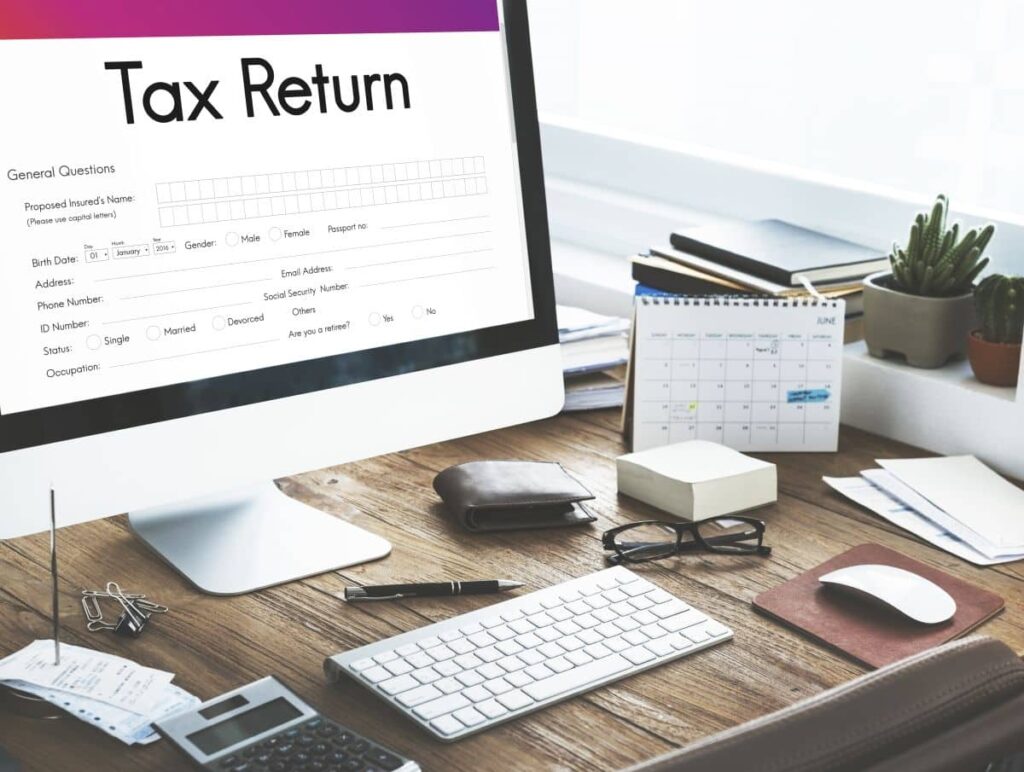Essential Taxation Tips For Small Businesses
It’s possible to have a lot of fun while still facing a lot of obstacles when you start and run your own small business. Consequently, despite the fact that there are many things to consider, tax planning ought to be one of them.
When it comes to taxes, there are a few key pieces of advice that proprietors of small businesses should always keep in mind. For instance, neglecting to take some deductions or failing to account for a particular income can result in an audit, which is why it is essential to be informed of the laws.
This blog post will explain some of the most crucial suggestions that can assist small businesses in filing their taxes in an effective manner while avoiding any unneeded problems. Continue reading to find out more!
It is the responsibility of each and every small business owner to learn the applicable tax rules and to abide by them. This can be a challenging undertaking, but if you have the appropriate information, it does not have to be overwhelming. The following is a list of important advice that will assist you in getting started.
First and foremost, you need to make sure that you are familiar with the many kinds of taxes that could potentially apply to your company. There are numerous types of taxes, including sales taxes, income taxes, payroll taxes, and state and federal taxes.
Get yourself acquainted with the dates for filing and paying your taxes, and make it a point to keep careful records of all of your outgoing money in order to arrive at an exact estimate of your taxable income. If you are having trouble navigating the tax code, there is a wealth of information available to you online as well as through professional accounting firms.
You have a lot of responsibilities to take care of as the owner of a small business. You are accountable for the management of the entire company, including the sales and marketing, accounting, and taxation processes. Even though doing your taxes isn’t your favourite time of the year, you still need to make sure you’re doing everything right to avoid getting in trouble with the Australian Taxation Office (ATO). The following is a list of important advice that you can use to correctly submit your taxes this year.
It is essential to have a fundamental understanding of taxation if you are the owner of a small company. The following are some vital pointers that will assist you in staying on top of your tax obligations. First and foremost, you need to be sure that you are keeping detailed records of both your income and your expenditures.
Because of this, preparing your tax return will be a lot less stressful. Second, make sure you are familiar with the various forms of taxation that can be applicable to your company. You might, for instance, be required to pay income tax, goods and services tax, or payroll tax.
In conclusion, if you are unsure how to manage the taxation procedure, you should seek the guidance of an expert. You may ensure that your small business is in compliance with all of the applicable tax rules by following these guidelines and putting them into action.
Do you get a feeling of complete helplessness whenever you think about your taxes? Taxation can be difficult to understand, but it is essential to have a foundational knowledge of the subject in order to maximize the value of your tax deductions.
This blog post will provide some helpful information for small enterprises regarding taxation. Taxes on self-employment, estimated taxes, and deductions are only some of the themes that will be discussed.
It is imperative to have a fundamental understanding of taxation and to take the necessary actions to maintain compliance, as failing to correctly file and pay taxes can result in expensive penalties and interest fees. This blog post will present some useful information that small businesses can use about taxation.
We will discuss a variety of tax-related subjects, including income tax, tax on self-employment, sales tax, and more. You have arrived to the proper location, therefore, if you are looking for advice on how to submit the taxes for your small business. Stay back for our next piece, in which we will present information that is more comprehensive on particular aspects of the taxation of small businesses.
Let’s get started!
Reduce Your Dependence On Debt Obtained From Outside Sources
Businesses should prioritize boosting the productivity of their existing assets and people in order to lessen their dependency on outside sources of financing. Increasing one’s cash flow not only helps pay down debt but also frees up money that may be used for making purchases or investments that do not require additional financing.
These activities may contribute to an improvement in the flow of cash:
- Make sure to follow up with your clients and customers whose payments are overdue or still outstanding;
- Forecast your monthly cash flow on a regular basis.
- Make it a top priority in your marketing to concentrate on goods and services that can generate revenue relatively rapidly;
- Maximize your utilization of the payment periods offered by your suppliers, but don’t be late with your payments;
- Lower stock levels by exchanging outmoded or stock that moves slowly with stock that has a high rotation rate;
- Sell off any assets that aren’t needed.
Boost Your Company’s Productivity
In order for businesses to be successful, they need to run successfully and efficiently.
The following are some methods in which you might increase your productivity:
- Collect data about your company’s performance and evaluate it in relation to your historical results, benchmarks in your industry, and the strategic objectives of your company;
- Determine the primary forces driving your company’s success and formulate strategic plans to address these forces.
- Assess the performance of your main drivers in comparison to your goals on a regular basis, and look for areas that might use improvement as well as risks and trends. It is easier to comprehend these facts when they are presented in a format that is easy to read, such as a dashboard report.
- Implement strategies to monitor the effectiveness of the implementation, and alter the plan as required.
Examine Various Cost Structures So That You Can Find Savings
If a company is unable to bring costs under control or transfer additional costs onto customers, then the company will see a decrease in both its cash flow and its profitability. This may have an effect on the possibility of success for your company in the future.
The following are some of the ways one can find savings:
- Analyzing the costs that are within your control. You should approach this in a systematic manner so that you won’t have to roll back any of the cost-cutting efforts in the future.
- Negotiating prices with suppliers or requesting different delivery methods or times with them. If suppliers can give stock on consignment or supply on a just-in-time basis, this could result in a reduction in the expenses associated with warehousing, which is one of the potential benefits of this situation.
- Identifying areas for development by comparing the cost structures of your company to those of other companies operating in your industry and reviewing previous results.
Consider Implementing Appropriate Methods of Risk Management
Your company is vulnerable to hazards that could endanger its continued existence when times are uncertain. In order to handle the following concerns, you should develop proper risk management strategies:
- Putting too much of your focus on a relatively small number of very large consumers;
- Putting too much of your trust in just one provider;
- Putting too much stock on a single form of financing or funding source;
- Goods on credit without conducting the necessary checks and failing to follow up on overdue payments
- Fraud.
Examine Your Organization’s Business Plan.
When the conditions of your business shift, it is a best practice to review your business plan and budget and make any necessary adjustments so that they accurately reflect the new environment.
The following are some actions that are recommended:
- assessing the underlying assumptions that support your business strategy and make any necessary adjustments to your plan if those assumptions have changed;
- analyzing the results of your company’s operations and implementing changes designed to boost those results;
- budgets and projections should be updated to reflect your revised business plan.
Even in the midst of economic unpredictability, possibilities for the expansion of your company will present themselves. You need to conduct thorough research into these possibilities in order to determine whether or not they fit in with your overall plan and whether or not they can be adequately supported. You could also need to make opportunities for yourself in order to search for new customers or markets.
It is highly recommended that you seek the professional assistance of your accountant in order to assist you in navigating through the economic uncertainty and positioning your company for success.
Expenses Related To Running A Home-Based Business That Can Be Deducted From Your Taxes

You may be eligible to claim tax deductions for home-based business expenditures if you run some or all of your business from your residence. The following types of expenses qualify for home-based business deductions:
- Expenses related to occupancy, such as principal and interest on a mortgage, rent, council rates, land taxes, and premiums for homeowners insurance;
- recurring costs (including those for things like power, the phone, the depreciation of plant and equipment, the cost of repairing furniture and furnishings, and cleaning);
- the costs associated with traveling by motor vehicle between your place of residence and other locations, provided that the trip was made for business purposes.
If you sell your house, you could be subject to capital gains tax (CGT).
It is essential to maintain accurate records in order to calculate your deductions and capital gains tax.
You are required to claim your deduction in your income tax return at the amount that does not include the goods and services tax (GST) if you are eligible to receive input tax credits for the GST.
What Exactly Is a Work-From-Home Business?
A home-based business is one in which the owner conducts the majority of business operations from within the owner’s residence. This means that the owner operates the company either entirely within the owner’s residence or from within the owner’s residence while devoting a specific room or space within the owner’s residence to the conduct of business operations.
It’s possible to operate a home-based business by:
- at home – which means that the majority of the job is completed at your residence. An illustration of this would be a dressmaker that does all of their business from home and invites clients to their residences for fittings.
- home – which means that your company does not own separate premises or rent separate premises. An example of this would be an electrician or lineman who performs all of their work at the locations of their customers but who does all of their record-keeping and keeps all of their tools and supplies (such as the electrician’s multimeter) at their homes.
If your home is not your fundamental (or main) place of business but you perform some work from home, you may still be eligible to claim a deduction for some of the expenses you incur in relation to the area that you use. This is the case even if your home is not your primary (or primary) place of business.
Write-Offs And Deductions On Your Tax Returns For Your Small Business
1. Making use of the immediate asset write-off for a firm
Because of this regulation, you may be able to deduct the cost of qualified company assets, such as automobiles, machinery, and equipment, in the same year that they were purchased.
If the requirements are met by your company, you may be allowed to deduct expenses related to the purchase of assets on your tax return for the year 2021. This is subject to the condition that they have their initial use or have been installed and are ready for use within the time periods specified by the ATO.
It is possible that you still have time to make purchases for your company and deduct the qualified amount from the amount of income you made in that tax year. As a result of the complexity of the requirements and the fact that not all acquisitions or expenditures may be eligible for the deduction, you will need to obtain your own personal tax advice before investing in the asset.
2. Making claims for the accumulated cost of company assets
In most cases, you will not be able to take advantage of tax deductions right away (with the exception of certain exceptional circumstances, such as the instant asset write-off, which was covered earlier). Instead, the cost of the asset is claimed over time, which reflects the asset’s declining value over time.
Tax depreciation is the term that most people use to refer to this process. The process of depreciation on taxes is complicated, and several laws may apply based on the kind of asset and how it is put to use. In addition, certain entities that fall under the category of small businesses may make the decision to file their tax depreciation claim under the simplified depreciation guidelines.
3. Prepaid expenses
It can be expensive to manage your own business, but you may be able to deduct some of the costs associated with doing so from your taxable income. This includes expenses that you pay for in advance.
If you prepay part of your expenses before the 30th of June, you may be able to enhance the amount of your deductions that you are allowed to take for the financial year in which those expenses were paid.
Expenses that have a service period of one year or less and fall under the category of “eligible expenses” include things like annual premiums, utility bills, and professional subscriptions. Take into consideration that if you claim them this year, you won’t be able to claim them again next year, which could result in an increase in the amount of tax you owe the following year.
4. Expenses related to business accounts and loans
At the end of the tax year, it is in your best interest to give some thought to the question of whether or not you are eligible to deduct the fees and interest associated with your business accounts and loans.
5. Tax deductions for individual retirement savings contributions
If you are under the age of 751, you may be entitled to deduct personal contributions to superannuation that you have contributed to an approved super fund from your taxable income.
To be eligible for contributions, individuals between the ages of 67 and 74 are required to pass the work test, which stipulates that they must have held a job that required them to work a minimum of 40 hours per week for a period of at least 30 consecutive days throughout the fiscal year.
Due to the work test exemption, beginning on July 1, 2019, if you are aged 67 to 74 (measured at the time of the contribution), you may be eligible to continue making voluntary contributions for a further 12 months from the end of the fiscal year in which you last met the required work test. This opportunity is available to you if you are between the ages of 67 and 74 at the time the contribution was made.
To be eligible to make contributions under the work test exemption, the total amount of money in your superannuation account must be less than $300,000 at the beginning of the financial year in which you make the contribution. Once you have satisfied the requirements of the work test exemption for a certain fiscal year, you will no longer be eligible to do so in subsequent years.
It is imperative that you keep in mind, in order to claim a personal superannuation deduction for the financial year, that the combined total of your superannuation guarantee payments, salary sacrificed amounts, and your personal tax-deductible contributions does not exceed $25 000 in a financial year. If it does, then you will be subject to additional taxation on top of what you are already paying.
You are required to provide a valid “Notice of intent to claim or vary a deduction for personal super contributions” form to your super fund within the prescribed time limits in order to make a personal tax-deductible contribution. Additionally, you are required to receive an acknowledgment for a valid notice in writing from the super fund.
6. Some further deductions
In the event that you have lately been working from home as a result of the coronavirus, you may be eligible to claim tax deductions for costs that are associated with the generation of your income.
Before you can claim a certain amount on your tax return, there are several factors that you need to take into consideration. For instance, you need to determine whether or not you are eligible to use the “shortcut method” that has been temporarily approved by the ATO (which is 80 cents per hour for all additional running expenses) for the period beginning on July 1, 2020, and ending on June 30 2021.
It’s possible that other ways of calculation are acceptable as well, and perhaps even more so, given your circumstances. Nevertheless, you want to give some thought to the procedure that is most suitable for your circumstances in addition to the requirements that must be satisfied to qualify for a deduction. The website of the ATO contains more information that can be accessed there.
There are a variety of different costs that you incur to maintain your company operationally or to assist you in generating cash from your business. Some of these costs may be deducted from your taxes. You can get additional information regarding deductions that you are eligible to claim by visiting the website of the ATO or by interacting with an accountant or tax adviser.
Putting Together Your Statement of Business Activity
After you have completed the steps necessary to register your company for the goods and services tax (GST), you will be required to submit a business activity statement (BAS) on a monthly, quarterly, or annual basis in order to satisfy your tax responsibilities.
The following are some suggestions that can assist you in doing your BAS in a timely and accurate manner.
1. Make sure that your information is prepared
Make sure that your numbers are completely accurate so that you may submit your BAS in the correct format the first time.
- Check to see if you’ve remembered to add all of your transactions;
- Check to see that they are all business-related costs;
- Make certain that your sales and expenses correspond to the same time period as your BAS reporting period;
- Check to see that you have correctly coded all of the items if you are using accounting software.
2. Complete your BAS
After you have all of your information compiled, you have the option of submitting your BAS either electronically or on paper. To assist you in completing the Goods and Services Tax (GST) part of your Business Activity Statement (BAS), the Australian Tax Office (ATO) has provided you with specific instructions.
A few things to keep in mind are the following:
- Fill in the boxes with whole dollars only;
- If a certain box does not apply to you, just leave it blank;
- On your BAS form, you’ll only be able to input positive values, not negative ones.
3. Lodge and pay on time
If you want to avoid having to pay any interest or penalties, make sure that your BAS is fully completed and paid for before the deadline. You can choose to accomplish either one of these things in any one of several different methods; for example, you can submit your BAS either online, over the mail, or through a licensed tax or BAS agent. On the ATO website, you can get further information on each of these choices.
4. Make sure to keep your records
In order to satisfy the record-keeping requirements of the ATO, once you have completed your BAS, you will be required to preserve a copy of it together with the papers that have supported it for a number of years.
5. Get help
Check out the ATO website or make use of one of the ATO’s contact services, such as a live chat session, if you have any inquiries regarding your BAS.
Tips For Small Business – From Small Business

1. Invest in an online shopping cart software that has integration features
It is important that your website not only provides a positive experience for your clients but also makes it simpler for you to run your company.
Both Artisanale Chocolate and The Scent Lab, an online candle shop, have stated that they decided to use a website platform that can easily interact with MyPost Business through the use of a plugin. Because of this, they cut their weekly time spent exporting orders and producing labels by several hours.
2. Pay attention to what the clients have to say
Feedback from customers may be an excellent source of ideas for the path your company will take in the future, whether those ideas involve the development of new products or the identification of ways to reduce friction in existing procedures.
3. Don’t compete on price
Price your products reasonably, and do not compete on price, otherwise, you may end up on a tremendous downward spiral.
Instead of reducing your goods, which could have an impact on how customers view the quality of it, consider how you could pass on the savings you made through My Post Business1 to your customers by providing free shipping or expedited upgrade options.
4. Collaborate with a service provider on whose reliability you can rely
It is of the utmost importance to collaborate with a delivery partner that you can put your faith in. You need to ensure that your clients do not experience any friction by providing a flawless service.
5. Begin by establishing a community
Your online presence can be strengthened by combining the benefits of social media and online shopping. For instance, Steph Pase, who runs Steph Pase Planners and has over 200,000 followers on Instagram, asserts that her robust community is the single most effective marketing strategy she does.
She says, “When our first planners go out, customers show their friends and family, and then we get another wave of orders.” “I always find that when our first planners go out, customers show their friends and family.” “We back up what they’re doing with our very own Facebook group, where everyone can discuss what they’re up to that week, including ideas for their challenges and objectives,”
6. Prepare yourself for international interest
Establishing an internet presence for your company gives you the potential to sell your wares to customers all around the globe. But before that, you need to put certain systems in place.
Steph Pase manages to dispatch her Australian planners to New Zealand, the United States, the United Kingdom, and even Paris, and she adds that doing so inside the same system was simple. She made the decision to upgrade the shipping method of all of her overseas packages to express shipping for the holiday season. Steph recollects that dealing with Australia Post was a breeze in this regard.
Additionally, Pod Co.’s market share is expanding in New Zealand. When we first introduced our chai latte pod, customers from New Zealand began contacting us with questions. “And we saw how easy it was to make that happen with MyPost Business,” says Ammar Roumani, one of the co-founders of the company.
7. Put the findings to the test and use them to learn
Because each company and each industry is unique, it is important to continue conducting tests on a limited scale in order to prevent making unnecessary investments. Rebecca notes that in order to sell Artisanale Chocolate successfully on social media, she is still figuring out what strategies work.
“We’re still very little in comparison to other participants in the chocolate business, which means that the problem is continuously advertising ourselves.” There is a wealth of information to be found in the analytics, so after you’ve released an advertisement, have a look at how it fares and use that information to guide the creation of the one that comes after it.
8. Cultivate a solid relationship with the manager of your neighbourhood Australia Post office
“Working with our local post office is like having a team of account managers we can ask about anything,” says Ammar, who works at Pod Co. “They help us make the most of services like eParcel,” says Ammar.
Have a conversation with them when they come in to pick up your packages, Stephanie from Mortels recommends. They will be able to assist you in locating the greatest platform and methods, as well as the best deal, for your company.
9. Have audacious goals while still being willing to take some sensible chances
“Retain a feeling of naivety that’s good for you; dream big and follow your hobbies; you’ll find out quite soon if there’s a market for your idea.” Eloise, who helped start TABOO, says.
When he first launched his company, Adam from The Scent Lab claims he didn’t know anything about how to operate a business, but the risks paid off.
“Nobody ever accomplished anything worthwhile without being willing to take some chances. It is highly recommended that you believe in yourself, do some study, and then come to a conclusion. It’s okay for there to be some choices that don’t end up working out. You gain wisdom through it “he asserts.



















